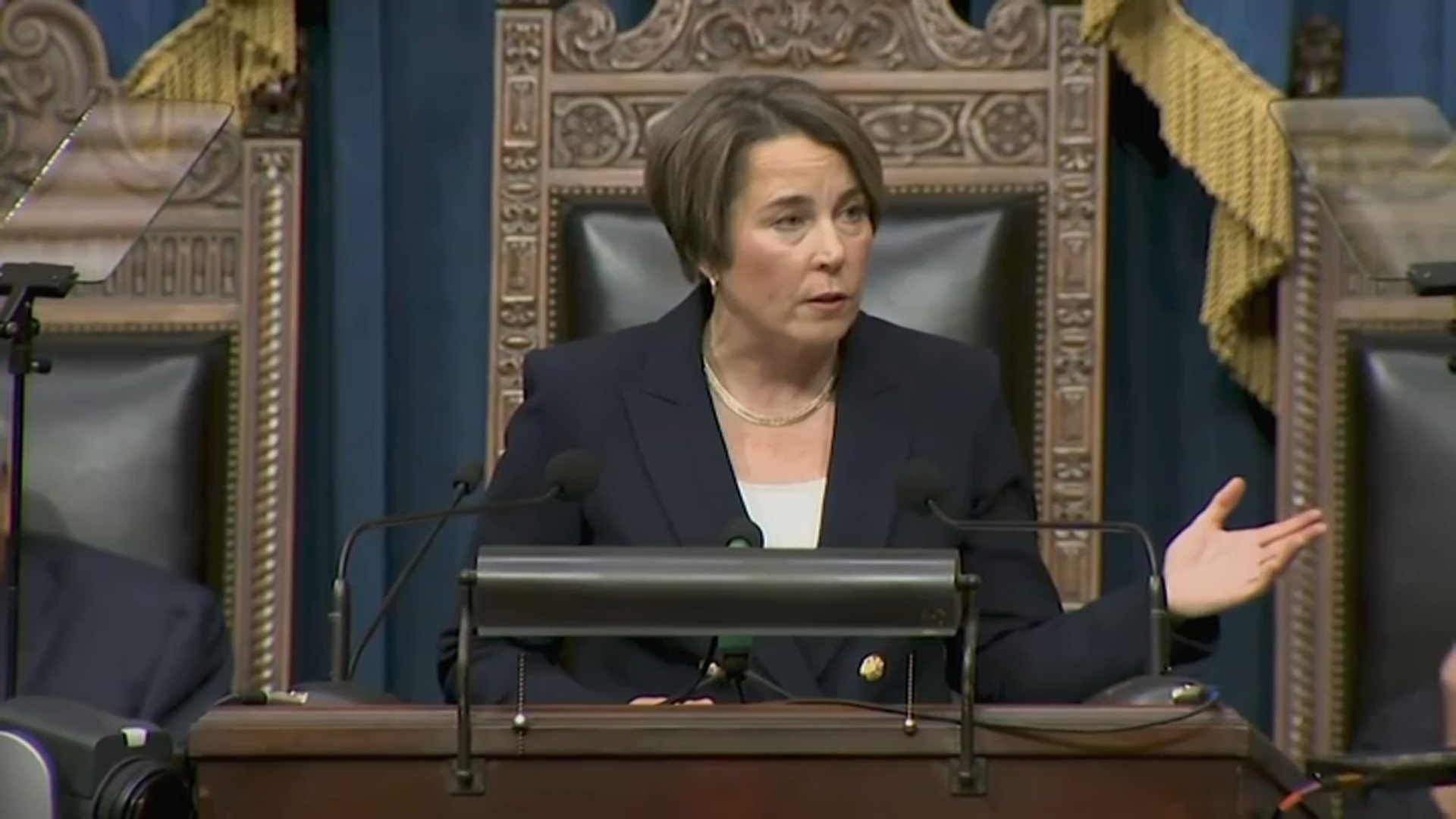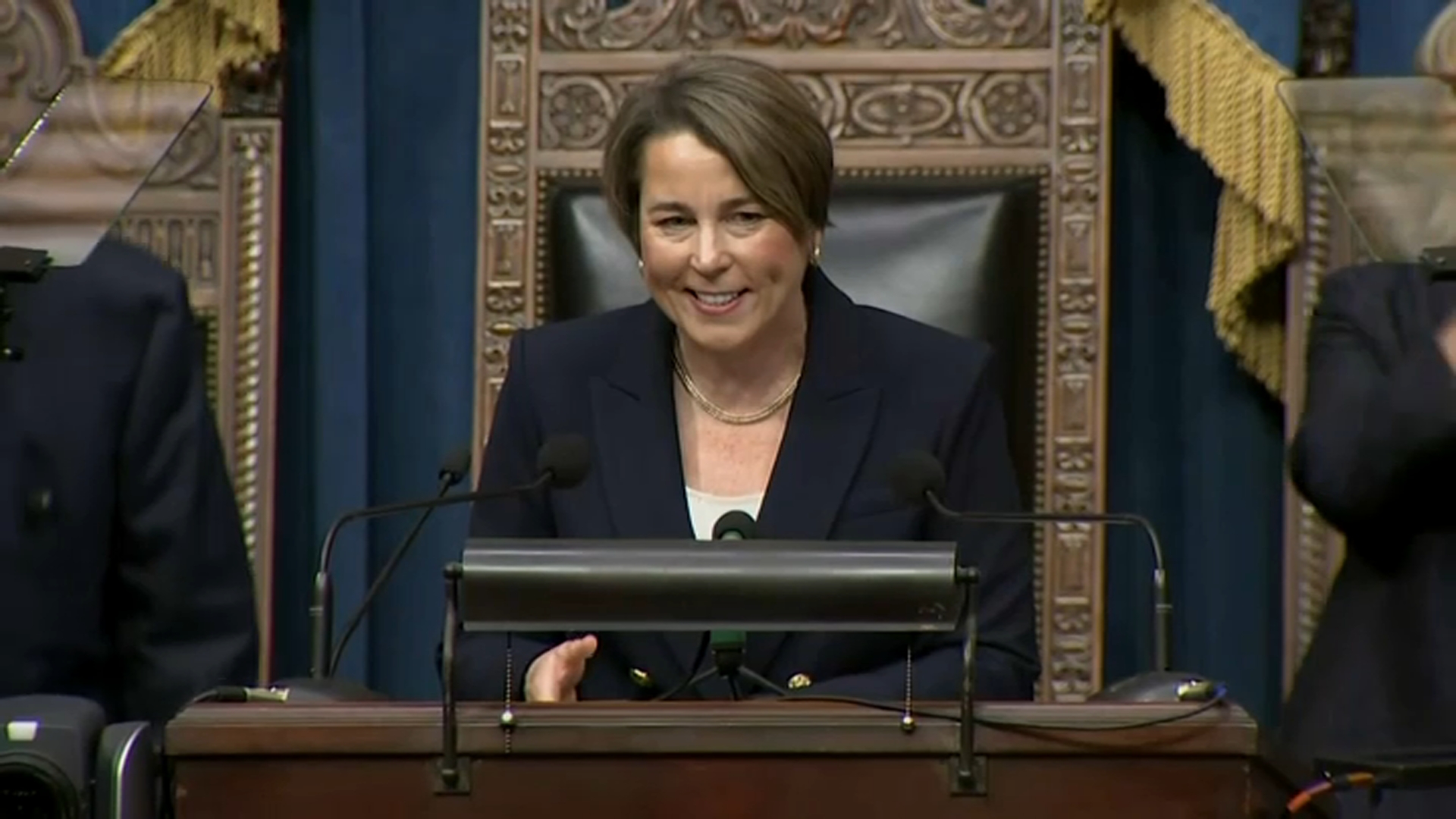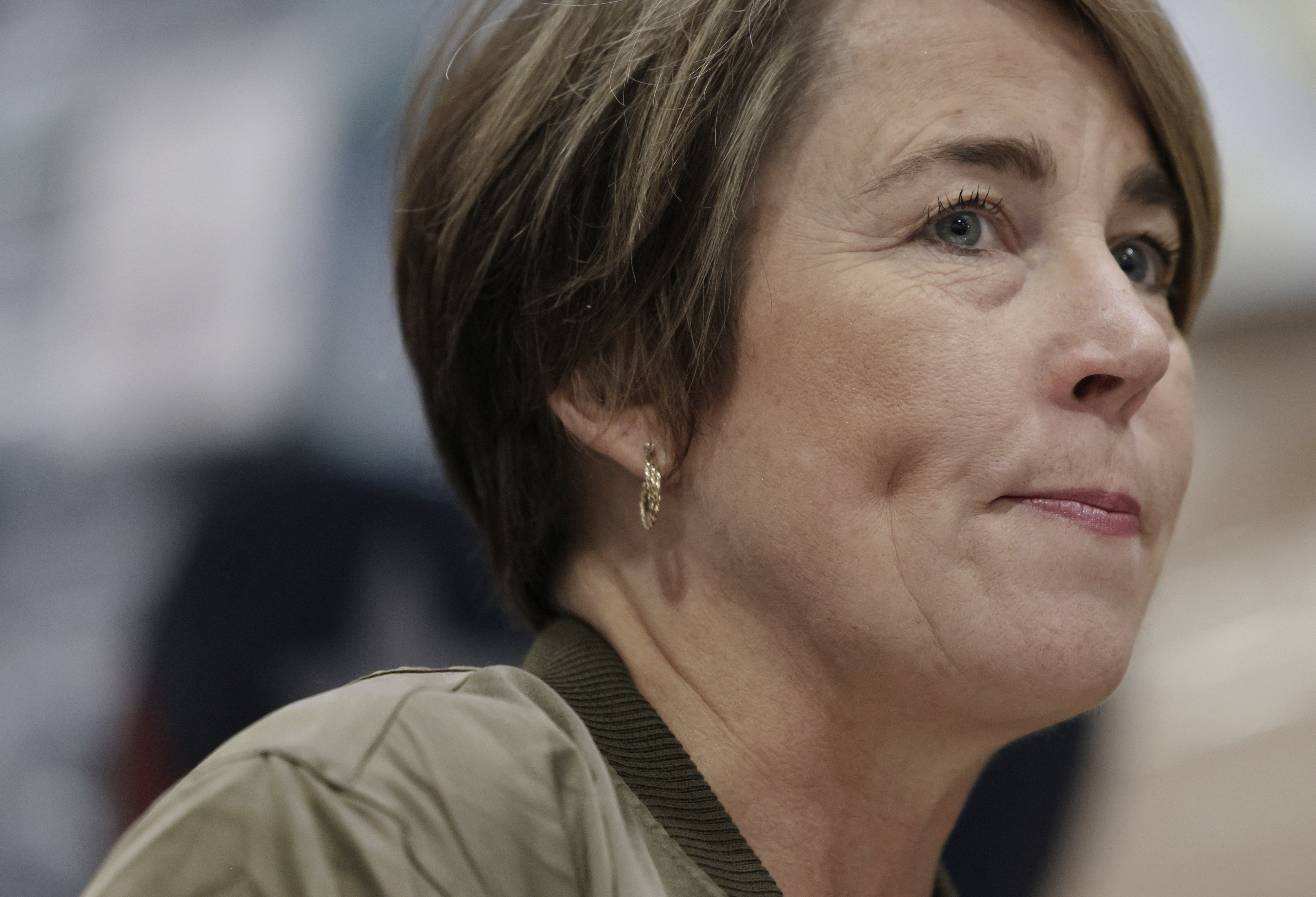
Massachusetts Gov. Maura Healey unveiled a fiscal year 2025 budget Wednesday calling for $56.1 billion in spending, an increase of about 2.9% over the 2024 plan.
"The budget we filed today is balanced, responsible and forward looking," Healey said. "It will protect taxpayer dollars and strengthen our state's fiscal health and respond directly to the needs of our residents and our economy."
WATCH ANYTIME FOR FREE
>Stream NBC10 Boston news for free, 24/7, wherever you are. |
Healey said the average rate of budget growth for the state over the last four years has been about 6.1%, twice as much as her plan.
"So in fact, we are tightening our belts, I want to be clear about that," she said. "Our economy remains strong, but the revenue picture is changing... In this environment, it is important that we manage spending in a way that is making strategic choices, examining the impact of every dollar we choose to spend and we bring our budget in line with the rate of inflation and in line with the resources and revenue we have."
Get updates on what's happening in Boston to your inbox. Sign up for our >News Headlines newsletter.
The budget now moves on to the Legislature for further discussion and debate.
"We have accomplished so much in the last year," Healey said. "Listening to residents in every corner of our state and working with the Legislature, we've shown we can take on the hard challenges and deliver. That's what our budget proposal for fiscal '25 is all about."
Healey's budget proposal contains many of the plans previewed in her State of the Commonwealth address last week, including record levels of funding for roadways and public transit, a new literacy program for schools, and a campaign for a multi-year investment to make the state a global hub for climate and clean energy technologies.
The budget proposal includes what Healey called "historic commitments" to the MBTA, doubling operating support and establishing a system-wide reduced fare for low-income riders.
The bill proposes $127 million more in state operating assistance to the agency, where officials continue to sound the alarm about their own budget gaps as they work to overcome a sustained period of service and safety problems.
It would also use surtax funding to backstop $1.1 billion in new transportation-related borrowing capacity. That move could steer $300 million in bonds to help the MBTA fix tracks and eliminate slow zones in fiscal 2025, and $800 million for other T and Department of Transportation capital projects in the next five years.
Cities and towns could be in line for another boost in local road funding, too. Healey, who on Monday filed a bill calling for $400 million in Chapter 90 funds over two years, also proposes in her budget to supplement the program with $100 million in surtax revenue.
The budget calls for increasing unrestricted general government aid to municipalities by 3% and Chapter 70 aid for public education by 4%.
Healey's team balanced their plan by trimming $450 million from various line items, proposing to prevent about half a billion dollars in other spending growth, and deploying $1.25 billion other available state resources.
Cost controls include closure of the MCI-Concord medium security prison and changes at MassHealth, which typically reflects the largest share of the budget. The budget will propose "flat spending" for MassHealth's personal care attendant program, reflecting a cap on hours authorized for meal preparation and some eligibility changes related to Activities of Daily Living support.
The bill doesn't propose any new tax increases to generate additional revenue, nor does it recommend tapping into the state's more than $8 billion "rainy day" savings account.
Instead, it calls for spending more than $500 million that lawmakers had set aside for K-12 public schools and early education and care, and allowing the administration to use $375 million that would normally be stashed into the stabilization fund as part of the annual budget.
The budget would fully fund another year of the K-12 education funding law known as Student Opportunity Act in part by drawing down $300 million from an investment fund specially designed to cover the costs of the law. Beacon Hill built up that fund in past years when the state was more flush with cash, and the withdrawal would leave about $200 million for future use.
Healey's plan would also pull $265 million from a similar early education and care affordability fund, fully depleting its balance.
Other new funding sources the budget targets include $100 million in redirected casino gaming revenue, $75 million in projected revenue from authorizing online Lottery sales, and a one-time "tax amnesty" program that officials say could generate $75 million.
Healey's budget proposes another year of funding free school meals for all students, using $170 million in surtax revenue, and $475 million in Commonwealth Cares for Children grants to early education and care providers funded partly via the additional levy on high-earning households.
While her administration continues to navigate an emergency shelter crisis, Healey will look to a separate legislative vehicle to cover unmet costs for the system.
Her annual state budget proposes level-funding the emergency assistance shelter system at $325 million in fiscal year 2025, which officials said could fund service for about 4,100 families -- just a bit more than half of the 7,500-family cap the administration implemented in response to unprecedented demand. The administration has estimated in recent reports to the Legislature it will need more than $900 million annually this year and next year to cover costs.
Healey on Wednesday also plans to file a separate supplemental budget that proposes draining a savings account, known as the transitional escrow fund, to help manage the shelter crisis in fiscal years 2024 and 2025.
State House News Service contributed to this report.




